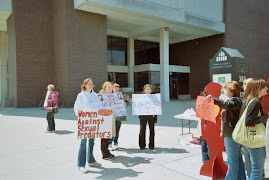CARSON - The men started checking in a few months ago, not long after state parole agents stopped by. They pay in cash, rent rooms, stay for a few days before they move on.
It's unclear how many actually live at the 60-unit Carson Plaza Hotel in north Carson at any one moment, but as of Friday, the state's Megan's Law Web site listed 30 names with the inn's address, up from 25 a week earlier.
Each man is a sex offender, and all are properly registered with deputies at the Carson sheriff's station.
Although the motel's registry doesn't list anything about customers' backgrounds, each man was recently paroled from prison. Each man committed a sex crime serious enough to find himself on the Megan's Law list of serious offenders.
They include Carlos Vega, who committed lewd or lascivious acts with a child under 14 and indecent exposure; Thomas Harold Lee, who served time for kidnapping with the intent to commit rape, sodomy and oral copulation; and Ulman Lynn Haynes, who raped and sexually assaulted a child. "They need to find housing for these folks who have been released from jail. They are parolees," said Hitesh Patel, general manager of the hotel at Main and Albertoni streets. "We are engaged in a business and it's not legal for us to discriminate." A few months ago, state parole officials approached Patel, telling him they had identified his hotel as a viable spot to house sex offenders because of its location. With last year's passage of Jessica's Law placing increased restrictions on how close sex offenders can be housed near schools, parks and residential areas, parole officials deemed the Carson Plaza Hotel ideal because of its isolation. The hotel sits alongside the Artesia (91) Freeway in an industrial area, far from schools, parks and homes. "It has never been easy to house sex offenders," said Suzanne Brown-McBride, executive director of the California Coalition Against Sexual Assault and chair of the California Sex Offender Management Board. "Residency restrictions create larger swaths of area where sex offenders can't be." Patel said parole officials asked if they could issue state checks to the hotel to pay for the parolees' rooms. Patel told them he did not accept checks and declined to enter into a formal agreement. Since then, men have walked into the hotel with cash, sometimes alone and sometimes with parole agents, to rent rooms that cost from $80 to $105 a night, Patel said. Patel said his front desk clerks cannot ask for the guests' backgrounds or turn them away without crossing lines of discrimination. "I think what I'd be worried about most is the connotation that we endorse the activities of these folks and what they've been indicted for and that we approve of what they did," Patel said. "We are legally bound to enter into business with these folks if they come to our counter and ask to do business." Patel said he informed his employees about the men staying at the hotel. So far, they have had no problems with them. The hotel general manager would not say whether he was glad to be receiving the business, or if he preferred that it disappear. He declined to say whether he would have his own mother stay there. Community concern Carson Mayor Jim Dear said the concentration of sex offenders in the north end of his city is a concern. "Ideally I don't want a single registered sex offender living in the city of Carson," he said. "If we could have our druthers, that's what I would want. But the state of California trumps us with its laws. ... To me these individuals can be a real, genuine threat to our community." Capt. Todd Rogers, commander of the Carson sheriff's station, said he became aware of the hotel a few months ago. He said it is not alone. Similar concentrations of sex offenders have been found in other jurisdictions. Sheriff's deputies from several police agencies have met to discuss the development, which is occurring in other cities in the county as parole officials try to keep sex offenders in areas away from children and homes. "We do know about it and we've actually had meetings with the city over it. What can you do? I can't go in there and kick them out," Rogers said. "It appears to be at this point legally compliant. To us it's an extraordinarily large concentration of sex offenders." Avoiding confrontation Placing the parolees at the isolated hotel is an effort to avoid the kind of problems that occurred in February in Long Beach. Last month, after Long Beach residents complained that about a dozen sex offenders were living in a 12-unit Alamitos Beach apartment building near two day-care centers, the City Council took action to restrict them from living there. The city attorney is working to develop an ordinance that would restrict sex offenders from living within 2,000 feet of licensed day-care centers and within 2,500 feet for high-risk sexual predators. "The debate is, is it better to have them in one place or to spread them all out so you have a sex offender living on every block," said Gordon Hinkle, deputy press secretary for the Department of Corrections and Rehabilitation. "This is not an easy situation. There is no easy answer." State law requires that parolees be returned to the counties where they were convicted. Hinkle said a debate needs to be held on whether placing them in light industrial areas can solve the problem of providing an alternative to putting them in residential neighborhoods, and whether housing them together makes it easier for law enforcement to monitor them.



No comments:
Post a Comment